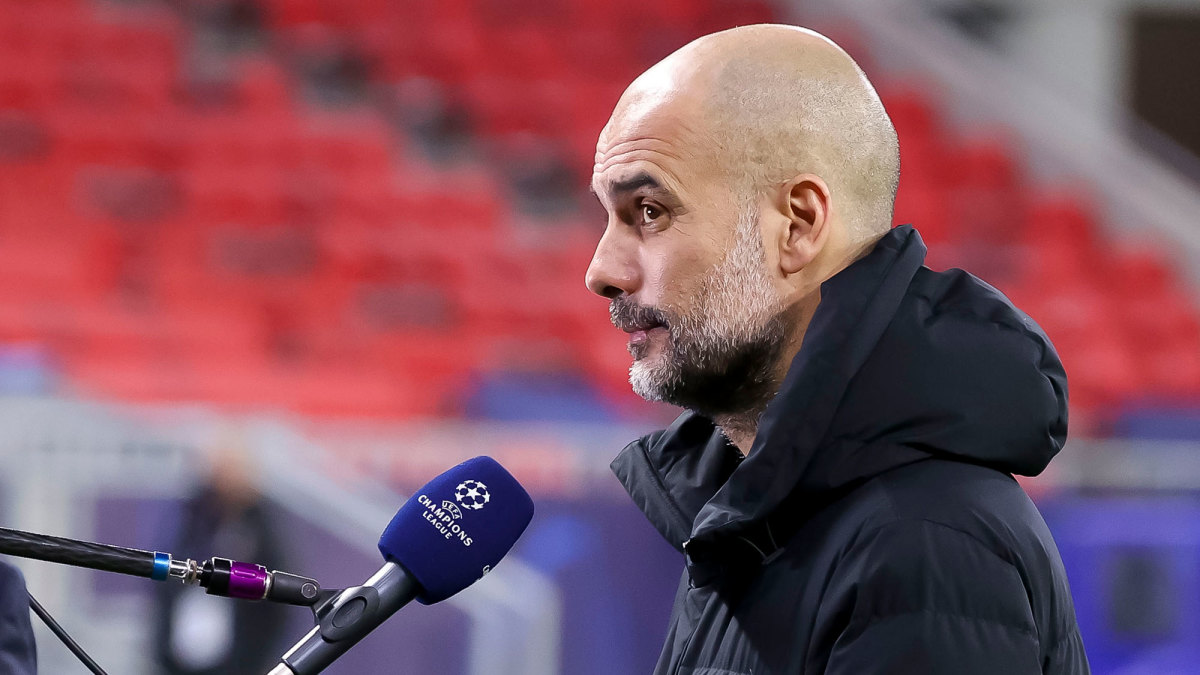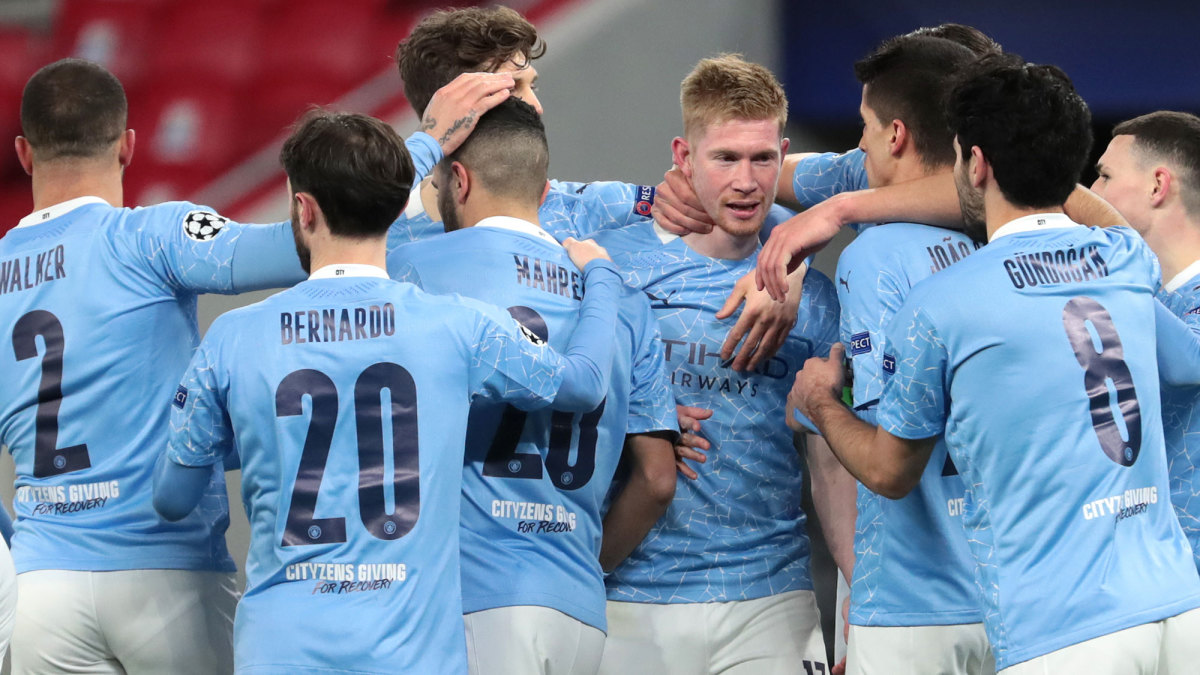This Time Could Be Different for Manchester City
Pep Guardiola feigned anger last week when Oleksandr Zinchenko mentioned the possibility of the quadruple, but surely those at Manchester City have thought about it. A straightforward 2-0 win over Borussia Monchengladbach on Tuesday completed a 4-0 aggregate victory and progression to the quarterfinals of the Champions League. City is already 14 points clear in the Premier League, in the quarterfinals of the FA Cup and the final of the Carabao Cup.
The transformation is remarkable. In mid-December, when City drew 1-1 with West Bromwich Albion at home, it was legitimate to wonder whether this might be the worst side that Pep Guardiola had ever managed. Since then, it has won 24 games out of 25 in all competitions.
On the one hand, that’s to do with the excellence of Guardiola. He has adapted to the circumstances better than anybody. In the previous three seasons, City and Liverpool have vied to have the highest proportion of pressures in the final third. This season, with a truncated preseason and a compressed calendar, pressing with that level of intensity is impossible. And so Guardiola has worked out a way to play slightly more conservatively, even though that goes against his natural instinct. Now City sits fifth in the Premier League for proportion of pressures in the final third; it just took a little time to get right, as games like the 5-2 defeat to Leicester in September made clear.

It may be that this approach, with the defense a little deeper, can solve the problem that keeps undoing Guardiola in Europe, that being the tendency to be caught out by balls played in behind its defensive line, and then by his convoluted attempts to counter that. For a decade, Guardiola sides—Barcelona, Bayern and Man City—have kept losing in surprising ways in the Champions League. The way Manchester United still undid City on the break in that one defeat in the last 25 games must still be a concern, but the slightly more cautious approach should make City, which has failed to get over the quarterfinal hump in four seasons with Guardiola in charge and gone out in that round in each of the last three, less vulnerable.
City’s level of consistency has been remarkable, its shutout streak in the Champions League up to seven matches. Again, Guardiola must take credit for the way he’s rotated. On Tuesday, there was no Raheem Sterling, Gabriel Jesus, Sergio Aguero, Fernandinho, Aymeric Laporte or Benjamin Mendy in the starting lineup—which itself is the other half of the equation, the more insidious part.
City is a brilliantly run club. Its facilities are first-class. It has a coherent, holistic structure. Its recruitment has not been perfect—no club’s is—but it has been better than most, for all the problems with finding a central defender or a left back. But then that’s part of the problem. City, for instance, bought Nathan Ake for $55 million last summer. He has started just five league games, largely because of a series of hamstring injuries. For most clubs, to lose a signing who costs so much for so long would have been a major problem. But City also had the $85 million signing Ruben Dias, as well as Laporte, who cost $80 million in 2018, and John Stones, who cost $70 million in 2016.

Since Sheikh Mansour led the takeover of the club in 2008, City’s net spend on transfers alone is $1.65 billion. The vast majority of clubs simply cannot compete with that. As last year’s legal wrangling showed, it has pushed Financial Fair Play regulations to the limit (it should be recalled that although Man City's punishment for breaches was overturned, the club was not exonerated; the issue was a technicality in the timing of the charge). But there have always been rich clubs. What makes City different is that it, like Paris Saint-Germain, is effectively run by a state—and not just a state but one that is deliberately using football to polish a reputation tainted by questions about human rights abuses.
This level of superiority, the way that winning streaks in double figures have become commonplace; the way that the Champions League is the preserve of a handful of superclubs; the way that one club generally dominates in France, Germany and Italy, and two in Spain; the way that 95+ points has now become standard for winning the Premier League—none of these are normal. None of these things have happened before the last decade.
That’s the tragedy of City’s brilliance. Its football is glorious. Clearly it could have spent billions of dollars without achieving this level of excellence. On an abstract level there is a beauty to its football. But there must always be a thought of the owners who fund this magnificence, and of the financial structures that permit it.
